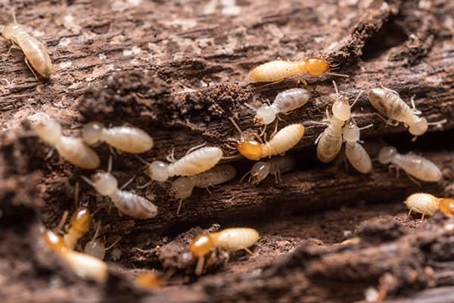The sight of some pests, like ants or fruit flies, elicits feelings of disgust and annoyance in most folks, but not much else. However, some household pests cause pure terror when they litter across the floor. While spiders have a reputation for being the most feared bugs, the sight of a large centipede in your home can be surprisingly distressing.
Centipedes are common pests in basements and backyards throughout the United States. If you’ve been wondering about centipede control in South Carolina, here’s what you need to know.
About Centipedes
Centipedes are known as insects with one hundred legs, which isn’t entirely accurate. Centipedes are arthropods, not insects, and can have fewer than 20 or more than 150 legs, depending on the species.
There are four known species of centipedes living in the United States that can vary in size from as small as 1/8 inch to over six inches in length. Centipedes can be identified by their long, flat bodies and many pairs of legs. Combined with their pincer-like jaws and long antennae, centipedes can look very intimidating, especially because they can deliver a venomous bite.
But you don’t have to worry about deadly centipedes in your home. While their bite is venomous, it’s meant for killing the insects they prey upon and is harmless to humans, though painful. If you have pets or children, centipedes don’t pose a significant danger to their well-being.
Where Centipedes Live
As predators, centipedes survive best in environments with lots of prey. Generally, they prefer the outdoors where there are plenty of bugs to eat and they thrive in areas of moisture, like under rotting logs and large stones. Your backyard could be an ideal hunting ground for centipedes with adequate food and shelter, however, once the weather gets cooler, they may seek out warmer accommodations.
Your basement could be an ideal environment for centipedes. With excess moisture and humidity in cooler weather and other pests to prey on, centipedes can live comfortably in the subterranean levels of your property.
How To Stop Centipedes
While they may be relatively harmless, you still don’t want a house full of centipedes. There are a few key steps you can take to protect your property and prevent a centipede infestation from developing:
- Eliminate entry points – First, make sure there are no entry points for centipedes to breach. Inspect the foundation of your home for cracks and look for gaps around pipes. Seal any openings with caulk.
- Reduce moisture – Centipedes thrive in moist environments, and the presence of excess moisture can attract them to your property. Close off any leaky pipes or plumbing fixtures dripping in your basement or around your yard. Check that drainage and gutters are flowing properly.
- Install a dehumidifier – Many common pests are attracted to moist, humid environments. Installing a dehumidifier in your basement can help reduce the overall presence of prey insects and the predatory bugs that feed on them.
- Get rid of hiding spots – There are plenty of places around your property where centipedes could be hiding. Get rid of any piles of leaves, rotting wood, or large stones that might harbor centipedes.
Ultimately, the best thing you can do to stop centipedes from invading your property is to get help from the experts. At The Original Bugman Pest Elimination, Inc., we will provide you with a thorough inspection to identify pest problems and a customized, comprehensive pest control plan to eliminate problem centipedes and other household pests. Our fully licensed technicians will safely treat your home for the centipedes you have and prevent new ones from entering.
For advice or assistance with dealing with your centipede problems in South Carolina, get in touch with us today.
Schedule Your Free Inspection
Complete the form below to schedule your no-obligation inspection.

